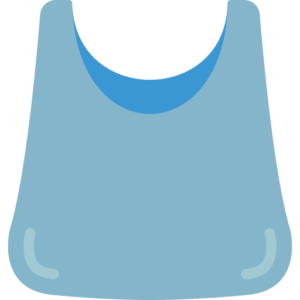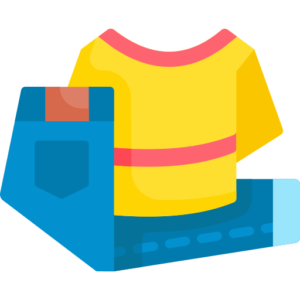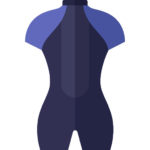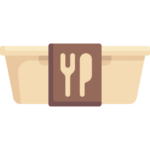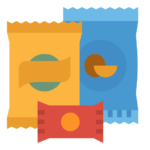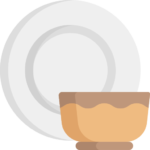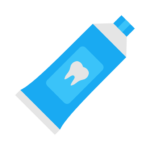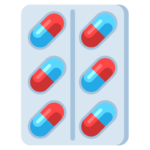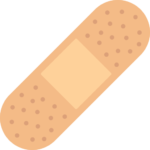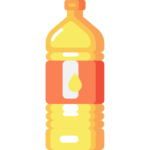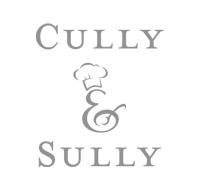
How to recycle
A short guide on how to correctly dispose of everyday items
To achieve sustainability in our consumption and waste management practices, it is crucial for individuals and communities to always keep in mind the principles of the 5Rs in the waste hierarchy: refuse, reduce, reuse, repurpose, and recycle – in this order.
Most people are familiar with the 5 Rs of the waste hierarchy:
Refuse – minimise your waste by refusing to buy items you don’t need, products that come in unnecessary packaging, single-use plastic items, etc…
Reduce – reduce the amount of wasteful and non-recyclable materials and use the smallest amount of products/resources you can
Reuse – switch to reusable items, instead of single-use ones, and reuse what you already have as much as you can before disposing of it
Repurpose (or repair) – if something can no longer be use for the purpose it was intended to repair it or repurpose it
Recycle – if you can’t refuse, reduce, reuse, repurpose, or repair something…then recycle it correctly.
Here you will find information on the basics of recycling, how to dispose of the most common beach find and items from our households and other relevant resources.
Recycling basics
The basic rule for recycling is that all items need to be CLEAN, DRY and LOOSE before you put them in the recycling bin.
Paper and Cardboard
You can recycle a wide range of paper and cardboard items, including newspapers, magazines, cardboard boxes, books, eggs and milk cartons, kitchen and toilet roll tubes, as long as they are clean, dry and loose before recycling.
Plastics
Both rigid and soft plastics can now be recycled in Ireland, as long as they are clean, dry and loose. Rigid plastics include plastic beverage bottles, soaps and detergent bottles, food trays, etc…Soft plastics include food packaging and bags, bubble wrap, and plastic bags to name a few.
Aluminium
Steel and aluminium can be recycled. Items like food tins, drinks cans, aluminium trays, and tinfoil can all go into our recycling bin.
Glass
Glass bottles and jars can be recycled. However, they cannot go in the household recycling bin with plastic, paper, etc...they need to be brought to your local bottle bank for recycling.
Are you unsure about what to do with certain items?
Make sure you know your recycling symbols. Repak has a guide to everyday recycling symbols on their website to help you identy and understand them. You can take a look HERE.
You can find additional information about recycling on the My Waste website: What to do with my recycling.
If you still can’t find the information you are looking for, click HERE and start typing the item you are trying to dispose of.
Common Beach Finds & How to Dispose of Them
Plastic Bags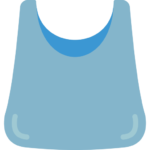 Soft plastics can now be placed in your recycling bin. Ensure the item is clean, dry and loose (not filled with other items).
Soft plastics can now be placed in your recycling bin. Ensure the item is clean, dry and loose (not filled with other items).
READ MORE
Clothing Clothing items do not go into the recycling bin, but unwanted, preloved clothing can be donated to your local charity shop or charity textiles bin.
Clothing items do not go into the recycling bin, but unwanted, preloved clothing can be donated to your local charity shop or charity textiles bin.
READ MORE
Coffee cup While the lid and sleeve can usually be placed in the recycling bin, coffee cups are almost always non-recyclable.
While the lid and sleeve can usually be placed in the recycling bin, coffee cups are almost always non-recyclable.
READ MORE
Disposable BBQs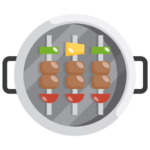 Disposable BBQs cannot be recycled. Wait until ash is fully cool and then place in general waste bin.
Disposable BBQs cannot be recycled. Wait until ash is fully cool and then place in general waste bin.
READ MORE
Scrape any food waste off the box into the brown bin and place the cardboard box into recycling.
READ MORE
Neoprene unfortunately cannot be recycled. If you have a wetsuit that is still useable rather than dumping it donate it to a charity shop or local surf school!
READ MORE
Clean and dry plastic toys at the end of their life can be recycled or otherwise placed in general waste.
READ MORE
Only certain types of takeaway boxes can be recycled, if they are clean, dry and loose.
READ MORE
Soft plastic items, like crisp packets, sweet wrappers, bags containing mixed salad etc...can finally be recycled in Ireland.
READ MORE
Items from home
Batteries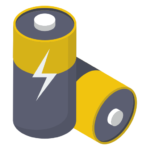 Most municipal recycling centres will have a battery recycling facility and many electronics shops will also have a battery recycling bin.
Most municipal recycling centres will have a battery recycling facility and many electronics shops will also have a battery recycling bin.
READ MORE
Aluminium foil & trays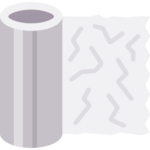 Aluminium items can be recycled if they are clean and dry – scrunch your foil and trays up into a ball, the bigger the ball the easier it is to be recycled.
Aluminium items can be recycled if they are clean and dry – scrunch your foil and trays up into a ball, the bigger the ball the easier it is to be recycled.
READ MORE
Glass Bottle and Jars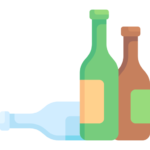 Glass bottles and jars generally fall into three categories – clear glass, green glass and brown glass, each of which is recyclable.
Glass bottles and jars generally fall into three categories – clear glass, green glass and brown glass, each of which is recyclable.
READ MORE
Expanded polystyrene is a material that can be recycled when separately collected, some civic amenity centres may accept it, but be sure to check locally before you arrive.
READ MORE
Toothpaste tubes are made of are a mix of materials and should be placed in the general waste bin.
READ MORE
Manual toothbrushes are made from different types of plastic and should be places in the general waste bins. Electric toothbrushes should be brought to a WEE dropoff recycling point or civic amenities
READ MORE
Pens and markers cannot be recycled. They should be placed in the general waste bin, as it’s too difficult to remove all the contents.
READ MORE
If you have a Food Waste Recycling service small amounts of fats, oils and grease can be disposed of in the food waste recycling bin.
READ MORE
What happens to our waste?
Brown Bin – The contents of the brown bins are sent for anaerobic digestion or industrial composting. There are seven private industrial composting facilities in Ireland licensed by local authorities or the EPA and the Department of Agriculture. The compost made at these sites is sold principally as peat replacement for landscaping, agriculture, and horticulture.
Green Bin – The contents of the recycling bin are processed in recycling plants otherwise known as material recovery facilities. Here the contents are unloaded from trucks on a conveyor belt system which uses different tools to separate metals from plastics and paper. These items are then sent to specific material recycling plants in Ireland or abroad. Materials which don’t fit into these categories are made solid recovered fuel to be used in cement kilns instead of coal.
Black Bin – The contents of the black bins are separated as far as possible using magnets and a similar system to the recycling bin. As much as possible of what can be composted, recycled or used for solid recovered fuel is separated out and the rest is mostly incinerated either in one of Ireland’s two incinerators or at one in Europe. Ireland also has 3 active land fill sites which is 15 less than in 2012
Stats on recycling in Ireland
The EPA Municipal waste statistics for Ireland 2019 report states that:
- Municipal waste is made up of household waste and commercial waste that is similar to household waste.
- In 2019, Ireland generated 3.1 million tonnes of municipal waste. 37% was recycled, 46% went for incineration with energy recovery and 15% was landfilled.
- Of the municipal waste that was recycled, 857,793 tonnes went for material recycling (up 1% on 2018) and 294,761 tonnes was composted/anaerobically digested (up 20% on 2018).
- 40% of all municipal waste (1.2 million tonnes) was exported for final treatment, up from 35% in 2018. Of the waste exported, most went for recycling (56%) or energy recovery (36%) while 7% went for composting.
The EPA Packaging waste statistics for Ireland 2019 report states that:
- Ireland generated 1,124,917 tonnes of packaging waste in 2019. 182,321 tonnes (16%) was recycled in Ireland, mainly glass and wood. Almost all plastic and paper/cardboard, and most metal packaging waste, was sent abroad for recycling.
- 62% of waste packaging was recycled, exceeding the current EU target (55%). However, this is down from 64% in 2018, and continues a decline in recycling rates seen in recent years. The future recycling targets(65% for 2025 and 70% for 2030) will be more challenging.
- Of the 319,082 tonnes of plastic packaging waste generated, only 28% was recycled. 69% was incinerated for energy recovery in 2019, contributing an estimated 350,110 tonnes of CO2 to the atmosphere in 2019.
- Recycling rates for other packaging types: glass (84%), paper & cardboard (79%), wood (79%) and metal (69%).
About the Big Beach Clean
The Big Beach Clean is an annual call to action as part of the International Coastal Cleanup (ICC), operated internationally by Ocean Conservancy. This call to action invites communities and volunteers around the country to remove litter from around the Irish coast after the end of the bathing season.
This initiative is also an opportunity for volunteers to get involved in a worldwide citizen science project, which entails collecting the amount and types of litter on Irish beaches and filling in Clean Coasts’ Marine Litter Data Cards. This will help heighten awareness about the issue of marine litter serving as an indicator of the magnitude of the problem and help shape future policies and campaigns.
In 2019, Cully and Sully Joined the Big Beach Clean for the first time. This year, we are happy to announce that they will support our initiative once more
This year, Cully and Sully will support us in providing our volunteers with the Big Beach Clean kits.
Cullen Allen (Cully) said “We are delighted to be supporting Big Beach Clean 2022. We love our beaches and waterways and use them all year round for various activities from windsurfing to sea swimming and we know how important it is for everyone to continue to protect them. We are hopeful for a bumper sign up this year and looking forward to the events in September”
How to recycle the Cully and Sully soup pot
Cully and Sully are Origin Green certified, as a business paying close attention to sustainability and sourcing within their business. Moreover, Cully and Sully are the first Irish food brand to become BCorp certified.
“We are committed to our people, our suppliers, our customers and our environment. Through our social and environmental commitments, re-use and recycling of our packaging is one of our key priorities as well as food education.”
This is why they have been working to cut out non-recyclable materials in their packaging and reduce the amount of plastic in their packaging. Their soup tubs are 100% recyclable, so check out the video below to find out how, and find some extra tips here.

